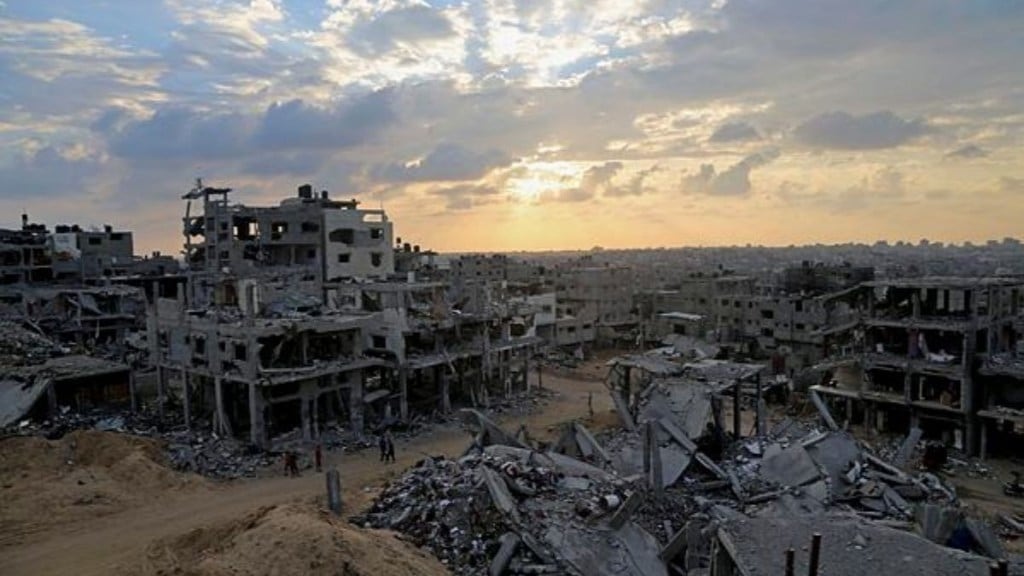Amid the ongoing conflict in Gaza, which has continued for several days following an eight-day war between the militant group Hamas and Israel, the Kingdom of Saudi Arabia has initiated an extraordinary ministerial meeting of foreign ministers from the Organization of Islamic Cooperation (OIC).
The call by Saudi Arabia for an “open-ended” emergency ministerial meeting has been made in response to the escalating military situation in Gaza and its environs. This decision to convene an urgent meeting has been based on an invitation extended by Saudi Arabia, which currently holds the rotating chair of the OIC.
It is noteworthy that this move from Saudi Arabia comes shortly after Iran’s call for a similar gathering to address the escalating military situation in Gaza.
The forthcoming emergency meeting is expected to take place in Jeddah on Wednesday. The Organization of Islamic Cooperation consists of 57 member states, primarily Muslim-majority countries.
In an official statement issued over the weekend, the OIC declared that the imminent meeting aims to address “the escalating military situation in Gaza and its environs, as well as the deteriorating conditions that imperil the lives of civilians and the overall security and stability of the region.”
The genesis of this urgent meeting can be traced back to the events of October 7 when Hamas launched a series of attacks on Israel, causing considerable loss of life. This attack, which transpired on that day, marked a significant escalation in the ongoing conflict, with Israel reporting the death of approximately 1,500 Hamas militants within its territory.
As the hostilities between Hamas and Israeli forces continue to unfold, Iran, last week, took the initiative to call for an emergency OIC meeting to deliberate upon regional developments. It is essential to underscore that this onslaught by Hamas is the most substantial incursion into Israeli territory in many decades.
It is crucial to contextualize this situation in the broader framework of international relations, as it coincides with US-backed efforts aimed at inducing Saudi Arabia to normalize relations with Israel. This prospective normalization is expected to be contingent on a defense agreement brokered between the United States and Riyadh. Such a diplomatic maneuver would serve as an impediment to Saudi Arabia’s recent rapprochement with Tehran.
Iran has also entered the discourse, emphasizing the importance of this OIC meeting. Iranian Foreign Minister Hossein Amir-Abdollahian, after concluding an official visit to Qatar on Sunday, declared that Iran had been invited to participate in the OIC meeting, scheduled for October 18 in Jeddah, Saudi Arabia. This move underscores the gravity of the situation and the necessity of diplomatic engagement to address the ongoing crisis.
In the current scenario, Israel has intensified its efforts to incapacitate the Hamas group, relentlessly bombarding the Gaza Strip. This ongoing conflict has led to a substantial loss of life, with a reported death toll of at least 2,215 individuals. Moreover, Israel has amassed a significant deployment of tens of thousands of troops near the Gaza Strip in anticipation of a potential ground offensive.
The casualties and casualties continue to mount in Gaza, a densely populated Palestinian enclave home to 2.3 million inhabitants. The United Nations has unequivocally characterized the situation as dire. It has been reported that approximately one million Gazans have been displaced within the first seven days of the conflict with Israel, a revelation made by the United Nations agency responsible for supporting Palestinian refugees. Aid organizations on the ground have also echoed the sentiment that the situation in the besieged enclave has reached catastrophic proportions.
The military buildup on the border between Israel and Gaza persists. Israel has deployed tanks and weaponry, underscoring its preparedness for further military action. In this conflict, there has been a heavy toll on Palestinian lives, with approximately 2,670 Palestinians, including a significant number of children, having lost their lives in Israeli air raids. On the Israeli side, the number of casualties resulting from Hamas’s military operation stands at 1,400 individuals, including 286 soldiers.
The conflict traces its origins back to October 7 when Hamas initiated a series of attacks on territories in Palestine under Israeli control. These actions were taken in retaliation for months of violence instigated by Israeli settlers and military forces.
Iran has issued warnings that if other countries do not intervene to curtail Israeli aggression in Gaza, the situation in Palestine and the broader region will deteriorate further. In the midst of this unfolding crisis, the African Union, now a member of the G20, and the Arab League have sounded alarms regarding the potential consequences of an Israeli ground invasion of the Gaza Strip.
In a joint statement following a meeting between the Secretary-General of the Arab League, Ahmed Aboul Gheit, and the Chairman of the African Union Commission, Moussa Faki, both organizations called for an “immediate cessation of military actions in Gaza.” The statement emphasized the grim possibility of significant civilian casualties, including women and children, in the event of an Israeli ground operation, and the potential for such a situation to lead to a catastrophic outcome.

